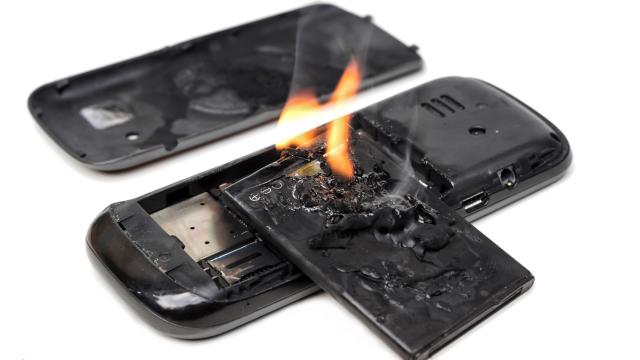For the first time, researchers say they have made a lithium-ion battery that uses a water-salt solution as its electrolyte and can reach the voltage needed to power household electronics and it doesn’t come with the fire and the explosions and the arrgghh that is a risk with “some commercially available non-aqueous lithium-ion batteries”.
The key to this battery? The special coating.
“In the past, if you wanted high energy, you would choose a non-aqueous lithium-ion battery, but you would have to compromise on safety,” says Kang Xu, lab fellow at the US Army Research Laboratory specialising in electrochemistry and materials science.
“If you preferred safety, you could use an aqueous battery such as nickel/metal hydride, but you would have to settle for lower energy.”
This new battery means you don’t have to compromise, Xu says – you can have both high energy and high safety.
Here’s how the study went down.
This latest research follows a 2015 study published in Science that produced a similar 3.0 volt battery with an aqueous electrolyte, but couldn’t get higher voltages becasue of what is known as “cathodic challenge.”
Cathodic challenge happens when one end of the battery, made from either graphite or lithium metal, is degraded by the aqueous electrolyte. To solve this problem and make the leap from three volts to four, University of Maryland assistant research scientist Chongyin Yang designed a new gel polymer electrolyte coating that can be applied to the graphite or lithium anode.
This coating expels water molecules from the area of the electrode surface and then, when it is charging for the first time, decomposes and forms a “stable interphase” – a thin mixture of breakdown products that separates the solid anode from the liquid electrolyte.
This interphase protects the anode from any side reactions, allowing the battery to use graphite or lithium metal materials so it can achieve better energy density and cycling ability.
“The key innovation here is making the right gel that can block water contact with the anode so that the water doesn’t decompose and can also form the right interphase to support high battery performance,” says Chunsheng Wang, Professor of Chemical and Biomolecular Engineering at the University of Maryland’s A James Clark School of Engineering.
The addition of the gel coating also makes the new battery safer than standard non-aqueous lithium-ion batteries.
All aqueous lithium-ion batteries benefit from the inflammability of water-based electrolytes as opposed to the highly flammable organic solvents used in their non-aqueous counterparts.
Unique to this one, however, is that even when the interphase layer is damaged (if the battery casing were punctured, for example), it reacts slowly with the lithium or lithiated graphite anode, preventing the smoking, fire, or explosion that could otherwise occur if a damaged battery brought the metal into direct contact with the electrolyte.
Next up, the researchers want increase the number of full-performance cycles that the battery can complete and to reduce material expenses where possible.
“Right now, we are talking about 50-100 cycles, but to compare with organic electrolyte batteries, we want to get to 500 or more,” Wang says.
The researchers point this is the first time “really reactive anodes” like graphite and lithium have been stabilised in water.
“This opens a broad window into many different topics in electrochemistry, including sodium-ion batteries, lithium-sulfur batteries, multiple ion chemistries involving zinc and magnesium, or even electroplating and electrochemical synthesis; we just have not fully explored them yet,” says Xu.
[Cell]
